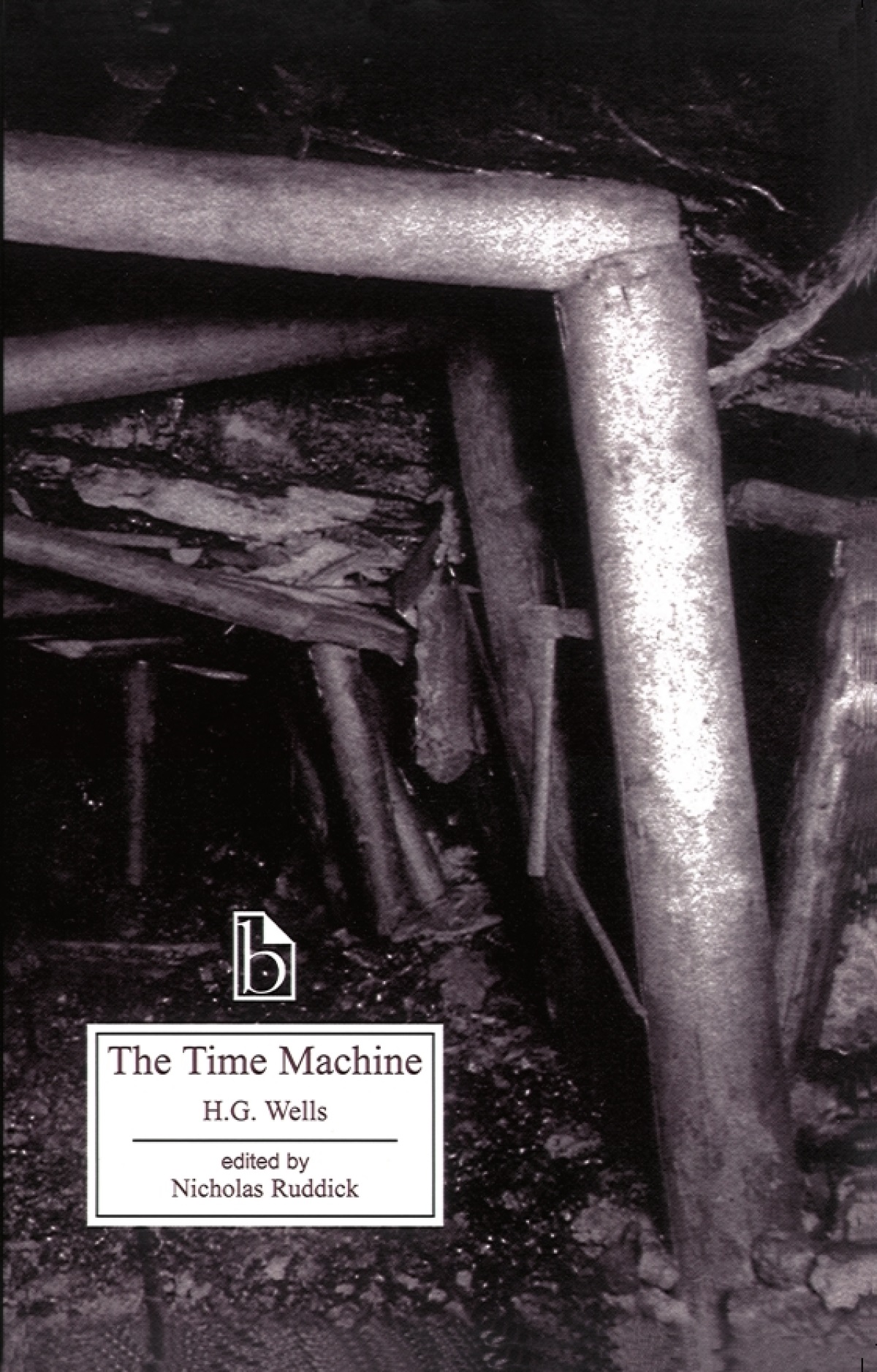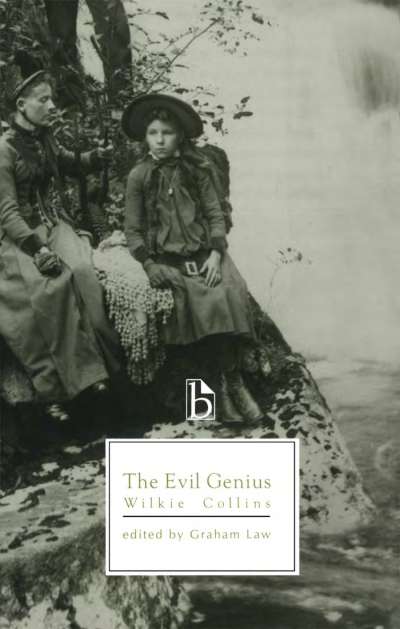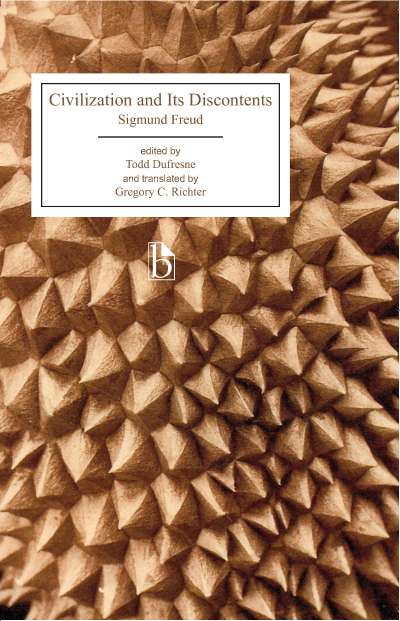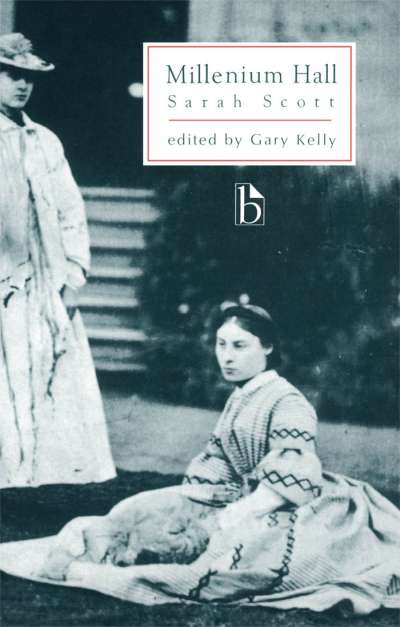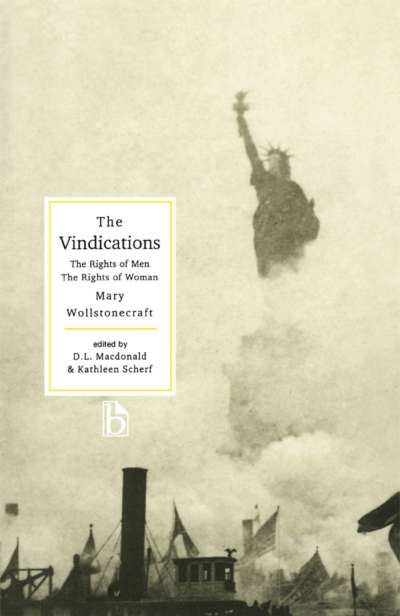Wells was interested in the implications of evolutionary theory on the future of human beings at the biological, sociological, and cultural levels, and The Time Machine, short and readable, draws on many of the social and scientific debates of the time. The Broadview edition of this science fiction classic includes extensive materials on Wells’s scientific and political influences.
Comments
“This is undoubtedly the definitive edition of H.G. Wells’s masterpiece, as fresh today in its imaginative power as the day it was written; but here refreshed by excellent introduction, notes and a comprehensive collection of appendices by Wells’s contemporaries. The method could not be bettered.” — Brian W. Aldiss, author of the Helliconia trilogy; Billion Year Spree: A History of Science Fiction and, most recently, White Mars: or, the Mind Set Free: A 21st-Century Utopia
“This is an invaluable edition of a text with a crucial role in modern culture. Wielding his meticulous scholarship and wide-ranging knowledge, Ruddick produces a splendid introduction and a rich selection of contextual materials.” — H. Bruce Franklin, author of War Stars: The Superweapon and the American Imagination and Future Perfect: American Science Fiction of the Nineteenth Century
“Ruddick offers a wide-ranging and stimulating Introduction to this generously documented edition of one of the great source texts of modern science fiction. General readers, students, and scholars will all be grateful for the comprehensive appendices, which provide a full selection of the scientific, philosophical, and cultural contexts out of which The Time Machine first emerged. This should be the scholarly edition for some time to come.” — Douglas Barbour, University of Alberta
“The structure of Ruddick’s book makes the complexity of The Time Machine easy to map, while the critical materials provide a basis for deep and detailed study. The impressive scholarship included ensures that it will remain a useful resource for teachers, essential for libraries and especially suitable for students or newcomers to Wells’ canon.” — Journal of the Fantastic in the Arts
“I exclusively use your edition of The Time Machine and cannot say enough about its perspective. Mathematics and science in literature is a specialty of mine, and there is no finer edition of that text. It is a keystone in my Mathematics and Science in the Humanities course. You folks at Broadview are outstanding!” — Michael J. Gormley, Quinsigamond Community College
Acknowledgements
Introduction
H. G. Wells: A Brief Chronology
A Note on the Text
The Time Machine: An Invention
Appendix A. The Evolutionary Context: Biology
- Charles Darwin, from The Origin of Species (1859, 1872)
- E. Ray Lankester, from Degeneration (1880)
- Thomas H. Huxley, from “The Struggle for Existence in Human Society” (1888)
- H. G. Wells, from “Zoological Retrogression” (1891)
- H. G. Wells, from Text-Book of Biology (1893)
- Thomas H. Huxley, from “Evolution and Ethics” (1893)
- H. G. Wells, “On Extinction” (1893)
- H. G. Wells, from “The Man of the Year Million” (1893)
- H. G. Wells, from “The Extinction of Man” (1894)
Appendix B. The Evolutionary Context: Society
- Thomas Carlyle, from Past and Present (1843)
- Karl Marx, from various writings (1844-64)
- Frederick Engels, from The Condition of the Working-Class (1845)
- Benjamin Disraeli, from Sybil (1845)
- Herbert Spencer, from Social Statics (1851)
- Herbert Spencer, from First Principles (1862)
- Jules Verne, from The Child of the Cavern (1877)
- Henry George, from Progress and Poverty (1880)
- Edward Bellamy, from Looking Backward (1888)
- Thomas H. Huxley, from “The Struggle for Existence in Human Society” (1888)
- William Morris, from News from Nowhere (1890)
- Benjamin Kidd, from Social Evolution (1894)
Appendix C. The Evolutionary Context: Culture
- Winwood Reade, from The Martyrdom of Man (1872, 1875)
- Friedrich Nietzsche, from The Joyful Wisdom (1882, 1886)
- H. G. Wells, from “The Rediscovery of the Unique” (1891)
- Max Nordau, from Degeneration (1892, 1895)
Appendix D. The Spatiotemporal Context: The Fourth Dimension
- Edwin A. Abbott, from Flatland (1884)
- C. H. Hinton, from “What Is the Fourth Dimension?” (1884)
- “S,” “Four-Dimensional Space” (1885)
- E. A. Hamilton Gordon, from “The Fourth Dimension” (1887)
- Oscar Wilde, from “The Canterville Ghost” (1887)
- William James, from The Principles of Psychology (1890)
- Simon Newcomb, from “Modern Mathematical Thought” (1894)
Appendix E. The Spatiotemporal Context: Solar Death and the End of the World
- Jonathan Swift, from Gulliver’s Travels (1726)
- William Thomson, from “On the Age of the Sun’s Heat” (1862)
- Balfour Stewart, from The Conservation of Energy (1874)
- Balfour Stewart & Peter Guthrie Tait, from The Unseen Universe (1875)
- George Howard Darwin, from “The Determination of the Secular Effects of Tidal Friction by a Graphical Method” (1879)
- George Howard Darwin, from “On the Precession of a Viscous Spheroid” (1879)
- H. G. Wells, from “The ‘Cyclic’ Delusion” (1894)
- Camille Flammarion, from Omega (1894)
Appendix F. Extracts from Wells’s Correspondence
Appendix G. Wells on The Time Machine
- H. G. Wells, from “Popularising Science” (1894)
- H. G. Wells, from “Preface,” Works of H. G. Wells, Vol. 1 (1924)
- H. G. Wells, from “Preface,” The Time Machine: An Invention (1931)
- H. G. Wells, from “Preface,” Seven Famous Novels (1934)
- H. G. Wells, from Experiment in Autobiography (1934)
- H. G. Wells, from “Fiction About the Future” (1938)
Appendix H. Reviews of The Time Machine
- From Review of Reviews [London] (March 1895)
- From Review of Reviews [New York] (June 1895)
- New York Times (23 June 1895)
- Spectator (13 July 1895)
- Literary World (13 July 1895)
- Nature (18 July 1895)
- From Saturday Review (20 July 1895)
- Daily Chronicle (27 July 1895)
- Israel Zangwill, from Pall Mall Magazine (September 1895)
- From Review of Reviews [New York] (October 1895)
Appendix I. Contemporary Portraits of Wells
- From Bookman (August 1895)
- “Picaroon,” from Chap-Book [Chicago] (1896)
Selected Annotated Bibliography
Works Cited
Nicholas Ruddick is a professor of English at the University of Regina, is the author of
Ultimate Island: On the Nature of British Science Fiction, and other critical works on science fiction.

